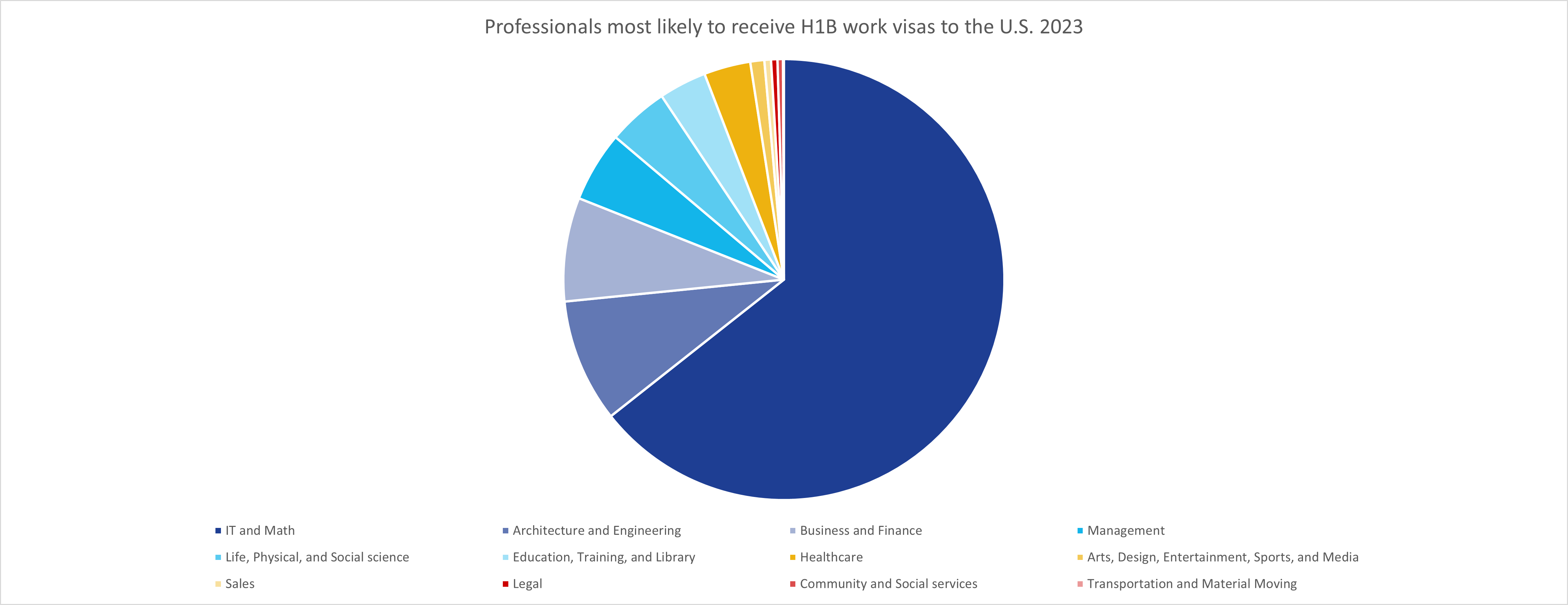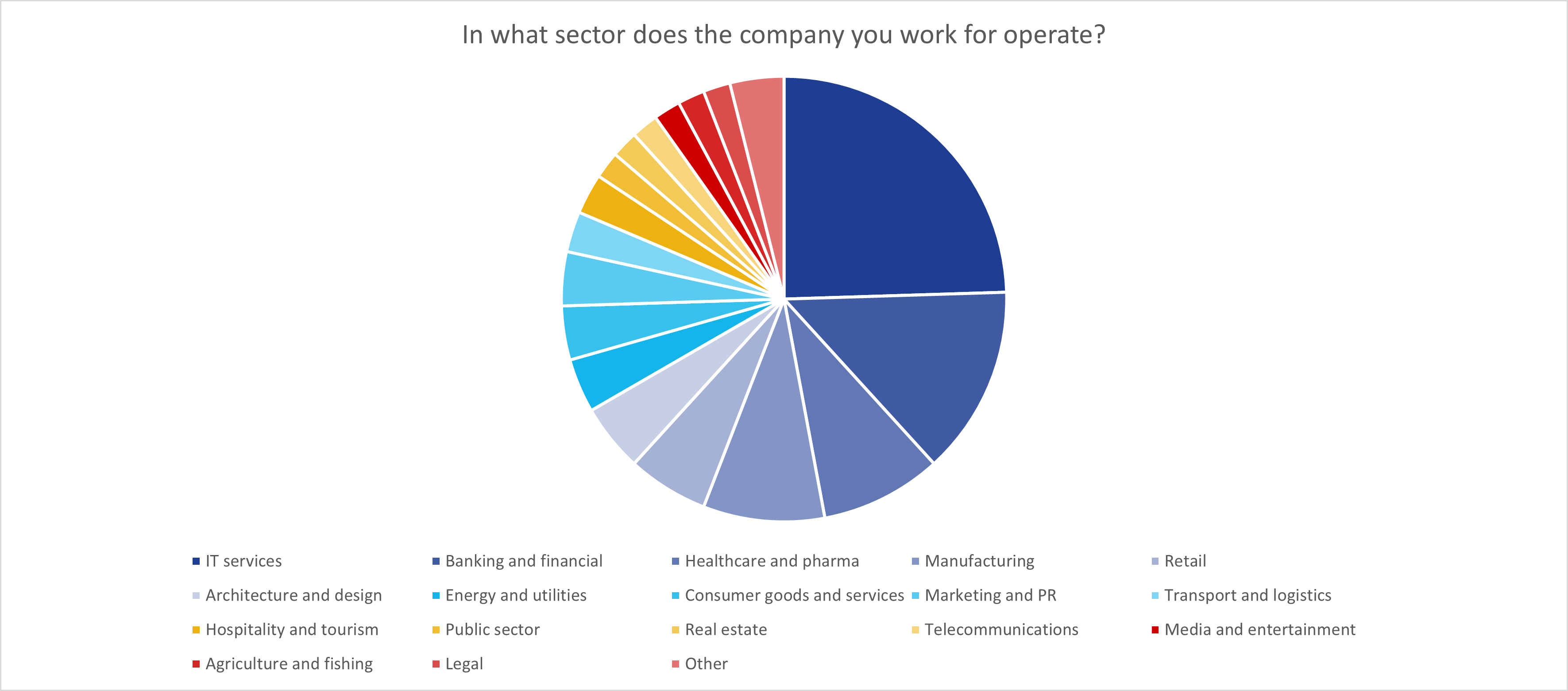Lawyers, Doctors and Engineers: Who is most likely to go overseas?
Relocating for work can open doors to new worlds. Getting that far however, usually requires a profession and a visa!
In expat-focused literature, there is comparatively little written about which types of professionals tend to become expats. In this article, we look at immigration statistics, our nearly 60 years of experience moving people and families, as well as our survey of 1,000 expats across the globe; in order to examine which jobs are most likely to lead overseas.
Global demand driven primarily by scarcity
When we think about professionals on the move, we’re looking primarily at the global demand for specific skills and expertise. One of the best and most comprehensive sources of information on the topic of skills-driven relocation is the U.S. Government, which maintains large datasets and details on visa applications. Europe, Canada, and other destinations (such as Singapore and the UAE) are also very important sources of foreign talent, and we look at these too.
Let’s start by examining the key professions.
1. Information Technology (IT) and Engineering:
United States: The U.S. remains the world's top destination for IT and engineering professionals. In fiscal year 2023, 349,139 labor condition applications (LCA) were filed for IT and math roles, with an average salary of $126,235. Software engineers, developers, and data scientists are particularly prevalent among H-1B visa holders.
Europe: The EU Blue Card program also prioritizes highly skilled workers in IT and engineering. Germany, for instance, attracts numerous IT professionals due to its highly developed industrial and auto engineering sector. In 2022, the EU issued around 82,000 Blue Cards, with Germany and France being the main destinations.
Canada: The Global Talent Stream expedites work permits for IT and engineering roles, reflecting the high demand for these skills. Cities like Toronto and Vancouver are the primary beneficiaries of this. Montreal in particular has become a gaming development hub attracting software and design talent over the past 10 years.

2. Healthcare professionals:
United States: Healthcare professionals, while fewer in number compared to IT roles, are highly sought after and command high salaries. The average salary for healthcare roles under the H-1B visa is $181,175, indicating the demand for specialized medical expertise. Approximately one in five U.S. Physicians was born overseas.
United Kingdom: The NHS actively recruits international healthcare professionals, particularly nurses and doctors, from countries like India and the Philippines. The demand is driven by a shortage of domestic healthcare workers and the need for specialized skills. The proportion of foreign-born professionals is highest for doctors, with 35% being foreign born.
United Arab Emirates: Dubai and Abu Dhabi are major attractions for service professionals, thanks to their burgeoning financial services sector and tax-free income policies. Interestingly, the UAE has a particular preference for healthcare workers in 2024, with healthcare workers leading the average salary charts.
Australia: The country’s Skilled Occupation List often includes healthcare professionals, indicating a consistent demand for overseas talent to fill critical roles in hospitals and clinics.
3. Business and Finance:
United States: Business and finance roles accounted for 41,249 LCAs with an average salary of $118,273. This includes financial analysts, managers, and business consultants, reflecting the need for specialized financial expertise in a competitive market.
Singapore: As a major financial hub, Singapore attracts a significant number of expatriates in the finance sector. Its strategic location and favorable business environment make it an attractive destination for finance professionals from around the world. 30% of Singapore's population are non-citizens, making it second only to the UAE for expat population relative to naturalized population.
4. Academia and Research:
United States: Academic positions such as professors and research scientists are also common among H-1B visa holders, although understandably there are less of these in sheer numbers as compared to commercial professionals. Universities and research institutions in the U.S. attract global talent due to their advanced research facilities and funding opportunities.
Germany: The country’s research and development sector, supported by institutions like the Max Planck Society, attracts researchers from across the globe. Germany’s focus on innovation and scientific research makes it a prime destination for academic professionals. In 2020, one third of doctoral students in the U.S. in science and engineering were foreign born.
What sort of industries do expatriates work in?
Earlier in 2024, we ran a comprehensive survey 1,000 expatriates, living in Germany, the U.K., Australia, the U.S., India, and Singapore. One of the questions we asked was “what sector do you work in?”
As you can see, the results, at least in order of priority, mirror what we can see in terms of H1B visa recipients. IT services leads the way, followed by Banking and Financial, then Healthcare Services, and then Manufacturing. These four sectors collectively account for slightly over 50% of all the 1,000 respondents.

What drives these trends of expat employment?
1. Visa Policies and Work Permits:
Visa regulations play the most important role in filtering potential relocators. Countries with streamlined visa processes and favorable immigration policies tend to attract STEM professionals above all others.
For instance, the U.S. H-1B visa and the EU Blue Card are designed to facilitate the entry of highly skilled workers, thus influencing the relocation trends of professionals in these regions. What H1B as a program defines as a highly skilled worker is also crucial here in driving such an uptake among STEM professionals.
2. Economic Opportunities:
The availability of high-paying jobs and career advancement opportunities are significant motivators for professionals to relocate. Tech hubs like Silicon Valley, financial centers like London, and emerging markets like Singapore offer lucrative prospects for career growth. It’s worth noting that salary arbitrage is also an important motivator. For example, median salaries for Software Engineers are significantly higher in the U.S. than in Europe, contributing to a Europe to U.S. flow for many tech professionals.

Companies such as Amazon, Google, and Microsoft in the U.S., along with global consulting firms, are major employers of international talent, offering competitive salaries and career progression opportunities.
“Economic Opportunities” can also dovetail with geopolitical instability. For example, the Ukraine War and its effect upon the European economy, and ensuing relocation of Europeans to the U.S.
3. Quality of Life:
Factors such as quality of life, education, healthcare, and safety also influence relocation decisions. Countries with high living standards and favorable social infrastructure are more attractive to relocating professionals.
Relocating for work is a complex decision. If you’re thinking of moving overseas for work, and need to get started in thinking about what you’ll move and what you’ll need at destination, we’re here for you.